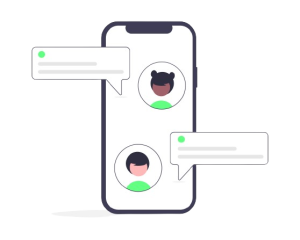
I’ve been watching the rapid rise of generative AI with a mix of fascination and dread. On one hand, these powerful language models offer tantalizing possibilities to streamline workflows, supercharge research, and deliver more personalized patient experiences. But on the other, they pose an existential threat to the core value and integrity of clinical expertise.
You see, we’re on the precipice of a brave new world where AI can effortlessly churn out uncannily human-like medical advice, research papers, and health content. No more poring over journals or straining our neurons to craft that perfect case report. Just type a prompt and let the machines do the work!
Hold up. That sounds like a recipe for disaster. The heart of healthcare is the sacred bond between clinician and patient, built on trust, empathy and the application of hard-earned expertise. Can we really start outsourcing this to soulless algorithms?
Absolutely not. As leaders in a tech-driven industry, it’s our duty to ensure that the human element remains central – not just for ethical reasons, but to protect the very foundations of our field. Let me explain why.
The Perils of AI-Generated Recommendations
Imagine a patient presenting with concerning symptoms. In the past, their clinician would carefully listen, ask probing questions, review their history, and draw on years of training to formulate a personalized assessment and treatment plan. A process inherently human, nuanced, and tailored to the individual.
But what if that clinician simply fed the details into a generative AI system instead? The AI might spit out an articulate, seemingly well-reasoned diagnosis and recommendations. Slick, efficient, and ostensibly “evidence-based”.
The problem is, that AI has no real understanding of the unique context, lived experience, and complex interplay of factors influencing that patient’s health. It’s making recommendations based on statistical patterns, not true clinical insight. And that’s a dangerous path to tread.
What if the AI overlooks a crucial detail? Or makes recommendations inappropriate for the patient’s circumstances, beliefs or access to care? The downstream impacts on their well-being could be severe.
Granted, AI will only become more sophisticated over time. But no matter how advanced, it can never replicate the holistic, empathetic decision-making of an experienced clinician. That’s the domain of the human mind – with all its nuance, intuition and lived wisdom.
So as health professionals, we must be vigilant. Any use of generative AI for direct patient care should be approached with extreme caution, rigorous validation, and clear communication of its limitations. The core of our work is simply too precious to entrust to machines.
Safeguarding the Integrity of Health Research and Publications
The perils of AI-generated clinical recommendations are concerning enough. But the risks become even more insidious when we consider the implications for health research and publishing.
Imagine a world where researchers can type a prompt and have an AI churn out a fully-fledged paper, complete with literature reviews, methodology, and discussion. Or where health publications rely on AI to create their educational content, patient resources and opinion pieces.
Sounds efficient, right? Save a ton of time and effort! The only problem is, that these AI-generated outputs would be utterly devoid of the human touch that gives research and health content its true value.
You see, the genius of scientific inquiry and health communication isn’t just about the facts and figures. It’s about the unique perspectives, creative leaps, nuanced reasoning and intellectual sparks that only the human mind can produce. The very essence of what makes research and health literature meaningful, trustworthy and impactful.
AI, no matter how advanced, will always be limited to regurgitating patterns in data. It can’t innovate, it can’t synthesize disparate concepts in novel ways, and it can’t infuse its work with the emotional intelligence and lived experience that gives human-authored content its power.
So as health professionals, we must be vigilant. Any attempts to automate the creation of research papers, clinical guidelines, patient education materials or other health publications through generative AI should be viewed with the utmost scepticism. The integrity of our fields quite literally depends on safeguarding the human element.
Own Your Tech-Savvy Superpowers (with a Healthy Dose of Scepticism)
I know what you’re thinking – “But wait, isn’t this guy supposed to be some kind of tech ninja? Why is he so down on AI?”
Fair point. As someone who gleefully embraces the power of technology to transform healthcare, I absolutely see the tremendous potential of generative AI. It’s an astonishing achievement of human innovation, and I’m excited to see how it evolves.
However, I also firmly believe that as leaders in a tech-driven industry, we have a responsibility to wield these powerful tools with wisdom, foresight and an unwavering commitment to preserving the human essence of our work.
That means being ruthlessly discerning about where and how we apply AI. Rigorously testing its outputs. And never, ever let it replace the core skills, judgment and empathy that define us as clinicians, researchers and health communicators.
Because at the end of the day, the true superpower of health professionals isn’t just our technical know-how. It’s our ability to truly see, hear and connect with the humans in our care. To bring our full selves – our curiosity, our compassion, our lived experiences – to every interaction.
And that, my friends, is something no AI can ever replicate. So let’s keep levelling up our tech game, but never at the expense of our humanity. The future of healthcare depends on it.

